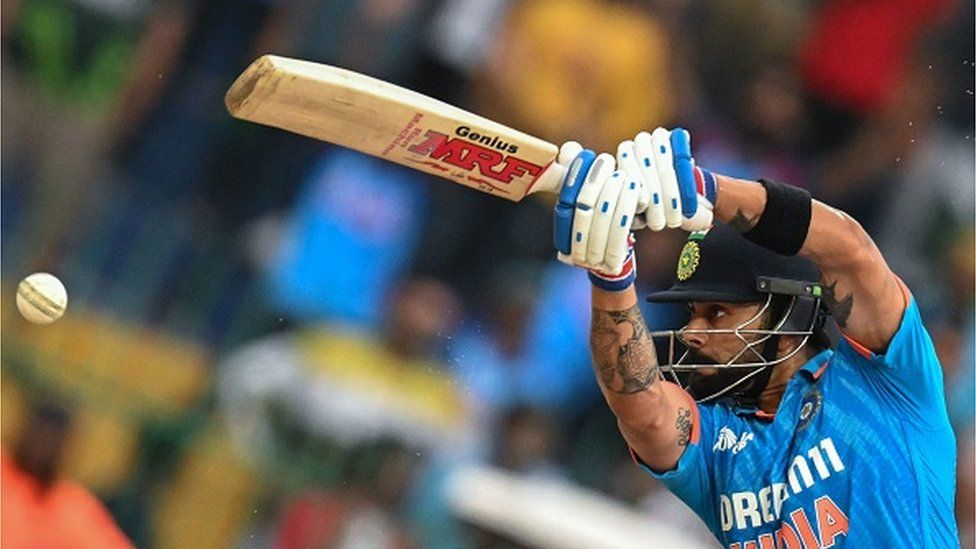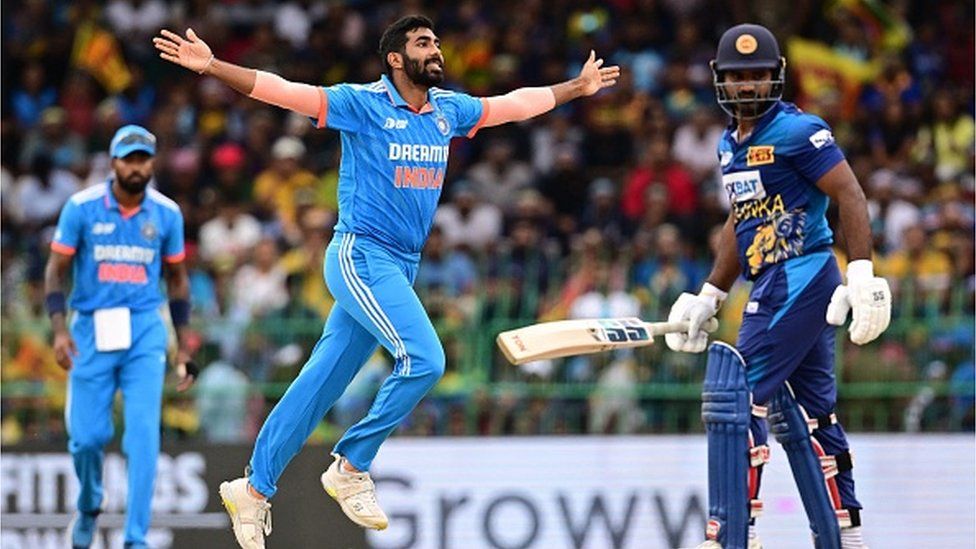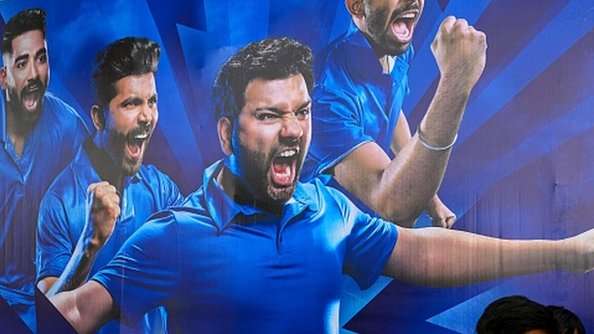Can India win the 2023 World Cup?
The answer is, yes, of course, they can.
They have the best team in the world, they are playing at home and they have an excellent recent record, including the triumph at the Asia Cup where five of the top nine one-day teams participated.
But we also have to acknowledge that a few other teams have roughly the same chance of winning: Australia, England, Pakistan, New Zealand, South Africa. Only the last two have not won before.
Ever since they won their first World Cup in 1983 in England, India have gone into every edition of the tournament as one of the favourites - including at home four years later. But a senior player in 1987 turned traditional thinking on its head by asserting that playing at home would mean additional pressure.
Familiarity with conditions would be trumped by unrealistic crowd expectations, went the argument.
India were eventually knocked out of the tournament in the semi finals.
But the fate wasn't repeated in 2011 when they won at home, with the final stroke being a six hit by skipper MS Dhoni.
Between 1983 and 2011, India made it to the final in South Africa in 2003, but collapsed in a heap against Australia.
Now expectations are high again from the team to repeat the triumph of 2011.

But a World Cup is a strange beast. Teams need to pace themselves over more than six weeks. The format, which sees each of the 10 teams playing against each other, means that an early loss might not matter.
It happened in 1992 when Pakistan were on the verge of being eliminated but "fought like cornered tigers", as urged by their skipper Imran Khan, and went on to win the tournament.
Pacing is crucial, since a team can peak too early or not late enough, play their best before the final and then fade away, as happened with India in South Africa in 2003.
The greatest challenge for coaches is to keep their players fit and time their peaks perfectly. Different players have different rhythms, and to ensure that their peaks coincide at the right time is the essence of the preparation during a World Cup.
Winning the Asia Cup in such an emphatic fashion - India made over 350 against Pakistan and then dismissed Sri Lanka for 50 in the final - has meant that expectations are high.
It was heartening for India that their two major players who were returning from injury got into the groove immediately. Jasprit Bumrah set up Indian victories with early wickets, bowling with the kind of skill that has taken him to the top of his profession.
KL Rahul, who was told just five minutes before the match against Pakistan that he would be playing, responded with a century, and kept wickets in the tournament with his usual lack of fuss.

Younger players are also doing well. Opener Shubhman Gill moved to number two in the world rankings behind Pakistan's Babar Azam, while Ishan Kishan has been playing well against some of the best bowling in the world. Virat Kohli - the only player in the team who played the 2011 final - made a stunning century against Pakistan in the Asia Cup.
However, the lack of a batter in the top half who can also bowl a few overs restricts their manoeuvrability and might have an effect as the tournament progresses.
Kuldeep Yadav has made a slight technical adjustment to his bowling, with a more straightened run-up and bowling slightly quicker and it is paying him dividends.
Most teams that have won the World Cup have been able to call upon six or even seven bowlers (Sri Lanka in 1996 being an excellent example), thus covering for an out-of-form performer or injury during a match.
For India to win, a majority of the batters and all five bowlers have to be consistent. Team selection will therefore be of utmost importance. The key might be all-rounder Hardik Pandya, and his fitness to consistently bowl through the tournament.
Since the heydays of the West Indies and the first three World Cups from 1975, there have not been absolute favourites, although Australia won thrice in a row at the turn of the century.
And that is the charm of the World Cup - three different countries have won the last three editions.








